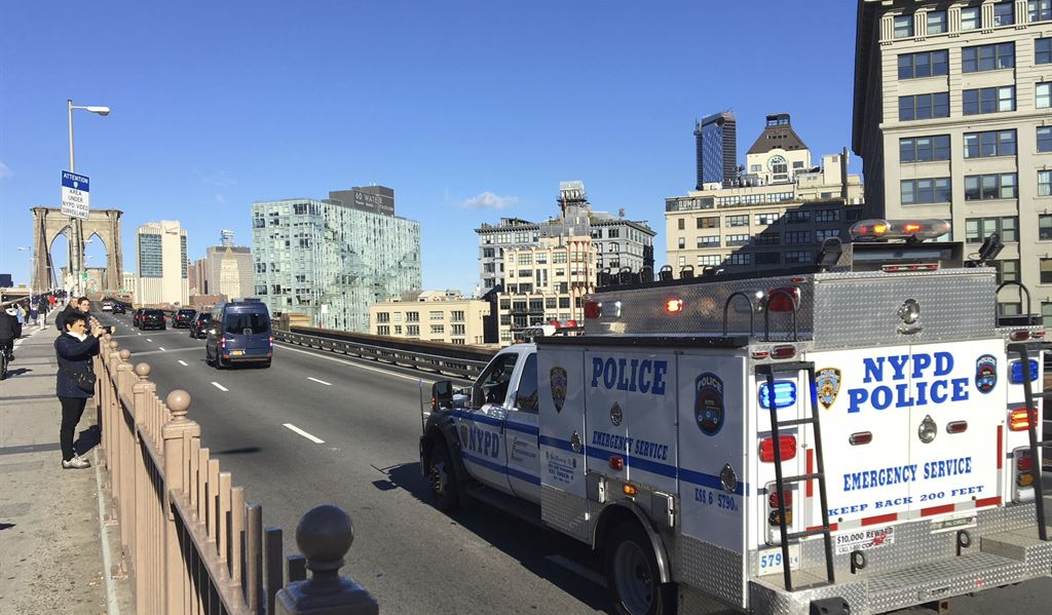The new Manhattan District Attorney has announced changes to his office's protocol for charging alleged criminals in a move that is set to usher in even more lawlessness in New York City even as crime skyrockets in the Big Apple and other cities across the country.
Rather than dedicating his office to stopping crime and protecting innocent citizens, District Attorney Alvin Bragg apparently wants to show more care and concern for the individuals breaking the law. Per a memo he sent to his staff earlier this week, Bragg decreed that "ADAs should use their judgment and experience to evaluate the person arrested, and identify people: who suffer from mental illness; who are unhoused; who commit crimes of poverty; or who suffer from substance use disorders" in making prosecution decisions. "Charges should be brought consistent with the goal of providing services to such individuals, and leverage during plea negotiations should not be a factor in this decision."
Alvin Bragg is a threat to public safety, he’s doing his best to San Francisco New York pic.twitter.com/OofthnhxQ6
— Brendan (@Lawlorbrendans) January 5, 2022
Among the changes being made, Bragg decreed his office "will not seek a carceral sentence" — that is, prison time — for most crimes other than homicide and a few other violent infractions. "This rule may be excepted only in extraordinary circumstances based on a holistic analysis of the facts, criminal history, victim’s input (particularly in cases of violence or trauma), and any other information available,” DA Bragg explained in his memo.
Recommended
In addition to this decision to go easy on most criminals, DA Bragg explained other changes to lessen the severity of charges leveled against the city's underclass:
Armed robbers who use guns or other deadly weapons to stick up stores and other businesses will be prosecuted only for petty larceny, a misdemeanor, provided no victims were seriously injured and there’s no “genuine risk of physical harm” to anyone. Armed robbery, a class B felony, would typically be punishable by a maximum of 25 years in prison, while petty larceny subjects offenders to up to 364 days in jail and a $1,000 fine.
Convicted criminals caught with weapons other than guns will have those felony charges downgraded to misdemeanors unless they’re also charged with more serious offenses. Criminal possession of a weapon in the third degree, a class D felony, is punishable by up to 7 years behind bars.
Burglars who steal from residential storage areas, parts of homes that aren’t “accessible to a living area” and businesses located in mixed-use buildings will be prosecuted for a low-level class D felony that only covers break-ins instead of for more serious crimes. Those more serious crimes, class B and class C felonies, would be punishable by up to 25 and up to 15 years in prison respectively.
Drug dealers believed to be “acting as a low-level agent of a seller” will be prosecuted only for misdemeanor possession. Also, suspected dealers will only be prosecuted on felony charges if they’re also accused of more serious crimes or are actually caught in the act of selling drugs. That felony would mean facing up to seven years behind bars.
Worse yet, Bragg believes — or at least claims — his changes will "make us safer" and "will free up prosecutorial resources to focus on violent crime." Maybe instead of ceasing to prosecute crimes and lock up those who break the law in Manhattan, law enforcement and the justice system should be refunded rather than defunded?
The reaction from Manhattan law enforcement was swift and severe. "Bragg gives criminals the roadmap to freedom from prosecution and control of our streets... In Bragg’s Manhattan, you can resist arrest, deal drugs, obstruct arrests, and even carry a gun and get away with it,” the NYPD Detectives' Endowment Association President Paul DiGiacomo told The New York Post.
“Brace yourself, New York: If you think crime’s out of control now, just wait until new Manhattan DA Alvin Bragg’s Keep Criminals Free plan kicks in.” https://t.co/fa6ItoO9XW
— Detectives' Endowment Association (@NYCPDDEA) January 5, 2022
New York's Police Benevolent Association added that "officers don't want to be sent out to enforce laws that the district attorneys won't prosecute... there are already too many people who believe that they can commit crimes, resist arrest, interfere with police officers and face zero consequences."
And then of course there are the millions of people who live or work in Manhattan who will now find that crimes committed against them yield no consequence for those who commit them. It's a recipe for anarchy in a place where law and order has already taken several hits thanks to radical "defund the police" activism and radical Democrat leaders.

























Join the conversation as a VIP Member